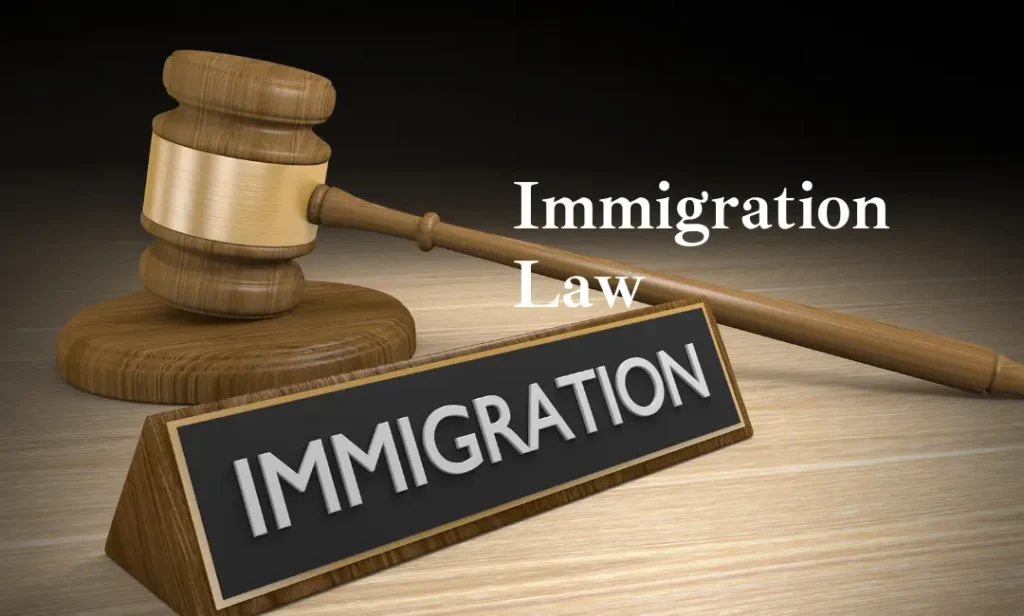Immigration Law: A Comprehensive Guide for Aspiring Immigrants
Immigration law is a complex and ever-evolving field that governs who can enter, reside, and work in a country. For aspiring immigrants, understanding the nuances of immigration law is crucial to successfully navigating the legal system and achieving their dreams of living in a new country. This comprehensive guide will explore the basics of immigration law, the types of visas available, the application process, and essential tips for navigating the legal landscape.
What is Immigration Law?
Immigration law encompasses the rules and regulations set by a country to control the entry, exit, and residence of foreign nationals. These laws determine the requirements for obtaining visas, permanent residency, and citizenship, as well as the rights and responsibilities of immigrants.

Types of Immigration Visas
1. Family-Based Visas
- Overview: These visas allow family members of citizens or permanent residents to immigrate and live together. They include immediate relative visas (spouses, children, parents) and family preference visas (siblings, adult children).
- Key Points: Requires proof of relationship and financial support from the sponsoring family member.
2. Employment-Based Visas
- Overview: These visas are granted to individuals with job offers or specialized skills needed in the host country. They include temporary work visas (H-1B, L-1) and permanent employment-based visas (EB-1, EB-2, EB-3).
- Key Points: Requires a job offer, labor certification, and proof of qualifications.
3. Student Visas
- Overview: Student visas (F-1, M-1) allow individuals to study at accredited institutions in the host country. They are usually temporary and tied to the duration of the academic program.
- Key Points: Requires acceptance into an educational institution and proof of financial means to support oneself.
4. Refugee and Asylum Visas
- Overview: These visas are granted to individuals fleeing persecution or danger in their home countries. Asylum seekers must apply from within the host country, while refugees apply from outside.
- Key Points: Requires proof of persecution or danger and adherence to specific procedural requirements.
5. Investor Visas
- Overview: Investor visas (EB-5, E-2) are granted to individuals who make significant financial investments in the host country’s economy, creating jobs for local workers.
- Key Points: Requires a substantial financial investment and proof of job creation.
The Immigration Application Process
1. Determine Eligibility
Identify the visa category that best fits your situation and ensure you meet all eligibility requirements.
2. Gather Documentation
Collect all necessary documents, such as passports, birth certificates, financial statements, employment letters, and educational transcripts.
3. Complete Application Forms
Fill out the appropriate application forms accurately and completely. Common forms include Form I-130 for family-based visas and Form I-140 for employment-based visas.
4. Submit the Application
Submit your application to the relevant immigration authorities, either online or through mail, along with the required fees.
5. Attend Interviews and Biometrics
Attend any required interviews and biometrics appointments. Be prepared to answer questions about your background, intentions, and eligibility.
6. Wait for Processing
Immigration applications can take several months or even years to process. Monitor the status of your application and respond promptly to any requests for additional information.
7. Receive a Decision
Once your application is processed, you will receive a decision. If approved, follow the instructions to obtain your visa and enter the host country. If denied, you may have the option to appeal or reapply.
Tips for Navigating Immigration Law
1. Stay Informed
Immigration laws and policies can change frequently. Stay updated on the latest developments to ensure you are aware of any new requirements or opportunities.
2. Seek Legal Assistance
Immigration law is complex, and the stakes are high. Consider consulting an immigration attorney to guide you through the process and help you avoid common pitfalls.
3. Maintain Accurate Records
Keep thorough records of all your interactions with immigration authorities, including copies of submitted forms, receipts, and correspondence.
4. Prepare for Interviews
Practice answering common interview questions and gather any additional documents that may support your case. Be honest and concise in your responses.
5. Be Patient
Immigration processes can be lengthy and stressful. Patience and persistence are key to successfully navigating the system.
Conclusion
Immigration law plays a vital role in shaping the demographics and cultural landscape of a country. For aspiring immigrants, understanding the intricacies of immigration law and the various visa options available is essential for a smooth and successful transition. By staying informed, seeking legal assistance, and carefully following the application process, you can achieve your goal of living and thriving in a new country. Whether you are seeking family reunification, educational opportunities, employment, or refuge, navigating immigration law with diligence and preparation will help you build a brighter future.





